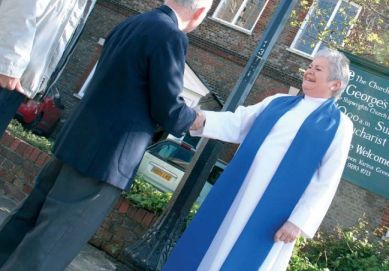Church Would Be 'Greatly Impoverished' Without Lay Ministers

With a university-designed course on the basics of Christianity set to start at a southern Church of England diocese later this year, a reverend coordinating training for licensed lay ministers in the area explained his realization that the ministers are a "great resource" without which the Church would "greatly impoverished."
Rev. David Lindsay, of the Diocese of Portsmouth gave his comments to the June edition of the local diocesan newspaper Pompey Chimes. Duties of lay ministers, also called Readers, include teaching and preaching within a pastoral context, while also assisting in worship, evangelistic and liturgical work of the church of parish area where they are licensed.
"To be honest, I hadn't had very much to do with readers until coming to this diocese. But I'm learning fast what a great resource they are, and I'm in no doubt about the huge value and importance of their ministry, without which the Church would be greatly impoverished," he said.
This September, the Diocese of Portsmouth will begin offering a two-year course which has already been available for several years in other dioceses called "Exploring Christianity." The course, which explains the basics of the faith, is available to anyone who has an interest in learning more about faith, the bible and a desire to be active in the local church.
It can also can be a gateway to a third-year of practical experience for participants that could culminate in becoming a licensed lay minister. The diocese has 88 such ministers. The report notes most have secular jobs as well, while also taking on the voluntary role.
"It's a stimulating and attractive course, designed for those who are beginning to be theologically literate, but rather less daunting in its time requirement," says Rev. Lindsay said.
During the past 10 years, the Diocese of Portsmouth has seen a significant decline in the number of those applying to become Readers, the report notes.
Lindsay contrasted the reduced demands of the course with another, the Winchester course, which specifies 10 hours per week, plus a weekly tutorial. He says those requirements are "a lot to ask" and involve as much reading and writing of essays as those being trained for ordination.
He suggested the demands may have been off-putting to some, since they've had to sacrifice time with their families, and often end up working more than expected.
The course was developed in partnership between Trinity College Bristol and the Church of England's Bath and Wells Diocese.